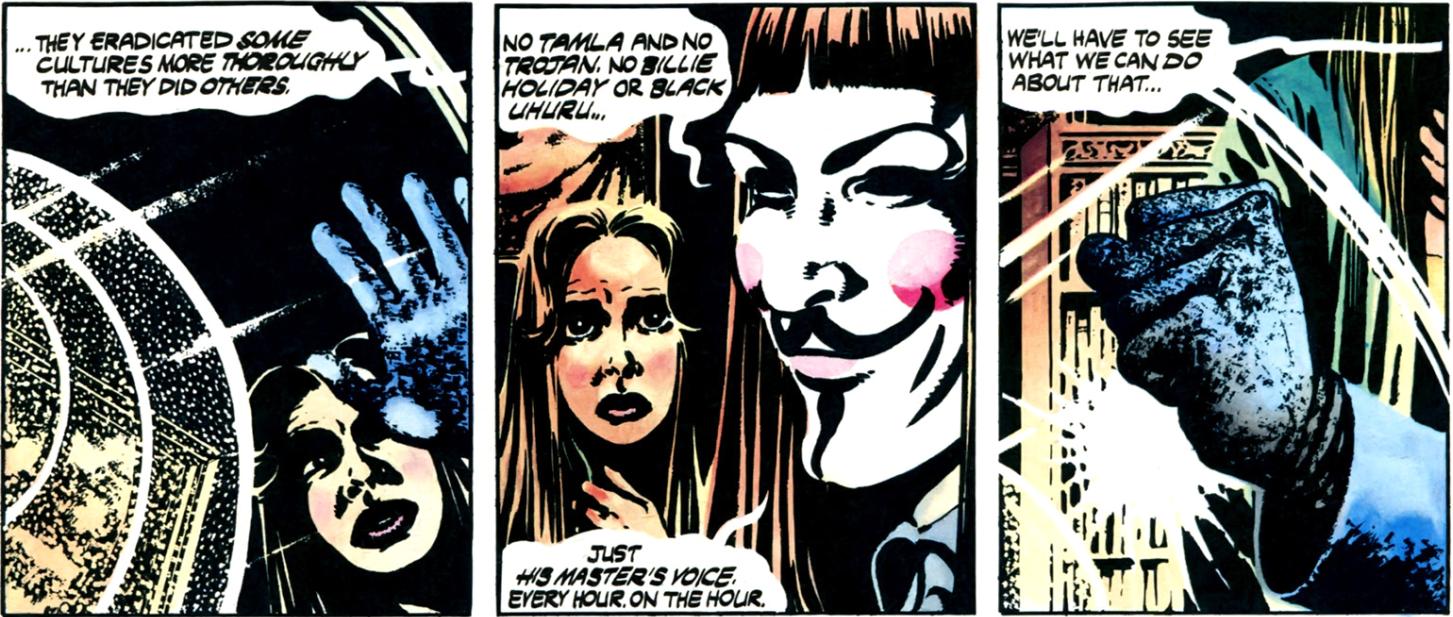I've recently been reading and re-reading Alan Moore and David Lloyd's V for Vendetta. After having skimmed through it multiple times and settling a few questions I had about the continuity, only one question remains. In volume I, chapter 2, The Voice, on page 13 the following conversation occurs:
... they eradicated some cultures more thoroughly than they did others.
No Tamla and no Trojan. No Billie Holiday or Black Uhuru...
Just His Master's Voice. Every hour. On the hour.
We'll have to see what we can do about that...
Italics authors', bold emphasis and choice of capitalisation mine
V says "his master's voice", which is also the title of the novel by Stanislaw Lem.
I can see that V is most likely talking about the order in which the citizens of post-war Britain live - the oppression, constant surveillance, fascism, etc. V's primary goal throughout the novel is to make people raise their heads and pave their own way with their own decisions, as opposed to their masters' voice.
But still I find the choice of words here peculiar. Having skimmed through Lem's novel's description on Wikipedia I can see that it is not exactly about the same things as V for Vendetta. There is a bit about "criticizing Cold War military and political decision-making as corrupting the ethical conduct of scientists", but as I said, this is not what V for Vendetta is about.
So here comes my question: is this quote a conscious reference to Stanislaw Lem's His Master's Voice? If so, how exactly are the two books linked? If not, what explains this choice of words (for instance, "their master's voice" would be more suitable, I think)?
I would appreciate if spoilers from Lem's novels be tagged as such
